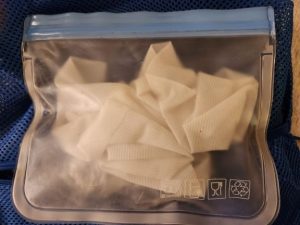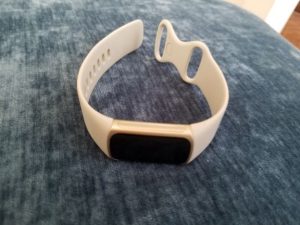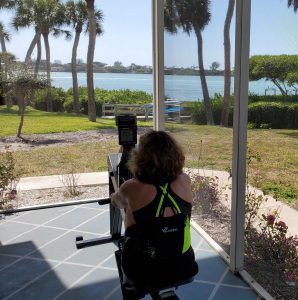I had a demanding interval workout on the rowing machine Saturday afternoon. My results were much better than a similar exercise I did last year, and I was able to stay more consistent from one interval to another, so I was pleased with my efforts.
When I woke up on Sunday, I felt okay—no aches or pains anywhere. All my energy seemed to have drained away overnight, though. I sat down on the couch with my coffee and breakfast, and then I couldn’t bring myself to get up and do anything else for a very long time. I just browsed aimlessly on my phone, with occasional thoughts that maybe I ought to do some spring cleaning or write a blog post; but it was pretty clear that neither of those would be happening anytime soon.
After what seemed like a very long time, I did get up and do some short yoga exercises, and later in the day I went for a walk with my husband. So, I wasn’t a total couch potato, but I felt that I wasn’t anywhere near being back to myself, either. Nothing whatsoever came to mind for a blog entry, and I wasn’t sure that I could put words together usefully even if I had a topic.
Monday morning didn’t go well. I had a woe-is-me internal narrative on auto-replay in the back of my mind, along the lines of, “Oh, yuck, the weekend is over already, back to sitting at my desk all day, and then I have to go sit on the rowing machine again, I’m so tired of having all my time and energy sucked up by these workouts, why can’t we have good spring weather so I could at least row on the river.”
Although I felt somewhat better on Tuesday, the blahs came back on Wednesday morning. That was even worse because it didn’t seem to make any sense; I’d had difficult workouts before, and they hadn’t left me feeling totally tired of everything for days. I put a “down under” image from New Zealand on my art display because it seemed to fit the upside-down feelings I’d been having.

At that point, it occurred to me that my New Year’s resolution of feeling unburdened by self-imposed obligations wasn’t going too well either. That Saturday workout, however tiring, was not actually much more than 12 minutes of hard exercise, plus warm-up and cool-down time; it certainly shouldn’t have left me feeling overwhelmed by life in general.
“But you know it wasn’t just the workout.”
The girlish voice came from Dot, who had appeared in my New Year’s resolution post representing my to-do list personified as Dorothy from the Wizard of Oz. Toto trotted happily at her heels over the warm sands of the beach picture.
“It’s all the disruptions and uncertainty of the past few years, plus all the time and effort that went into better fitness. Needing time to rest and take care of oneself is perfectly normal. For example, when my Kansas house got blown away to Oz, of course I was terrified for some time, but then I fell asleep. And before starting out on the yellow brick road, I took time for a good breakfast. That’s healthy.”
“Okay, maybe,” I answered, still feeling doubtful, “but if it’s healthy, then shouldn’t I feel better? And why haven’t I had any energy to write the simplest thing in my blog this week?”
“Don’t rush it. Get a good night’s sleep,” Dot advised, “and write that blog post tomorrow.”










